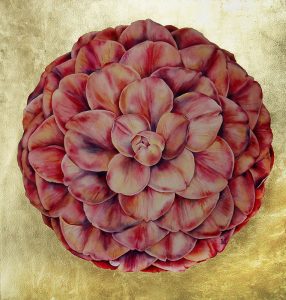 The Yogabliss, Two Rivers/RiverTree Yoga on-line Moving into Meditation classes met this morning. We explored our willingness to change and learn. We considered our inclination to learn about the natural world. We imagined how Earth bears the weight of our activities and choices. We considered our openness and ability to listen. We reflected on how we are changed by what we hear and see.
The Yogabliss, Two Rivers/RiverTree Yoga on-line Moving into Meditation classes met this morning. We explored our willingness to change and learn. We considered our inclination to learn about the natural world. We imagined how Earth bears the weight of our activities and choices. We considered our openness and ability to listen. We reflected on how we are changed by what we hear and see.
Our practice was informed by the second principle and practice of Rhonda Fabian’s article, Engaged Ecology: Seven Practices to Restore Our Harmony with Nature. The second principle: Nature adapts and self regulates. The second practice is being open to learning and change. In her editorial essay, Our Collective Journey, Rhonda laments the loss of migratory birds. She affirms our inter-relatedness and encourages us to face the difficult truths of climate change.
We were inspired by Kathleen Raine’s poem: Change. In Change, Kathleen gives voice to the sun and the moon and calls on us to care for the unknown and the unborn.
Poet philosopher, John O’Donohue’s essay, Rediscovering the Art of Reverence, describes the transformational possibilities of approaching our encounters with reverence. In bringing our complete presence to who and what we meet we experience our own heart’s light.
We ended with Zen Master Thich Nhat Hanh’s poem, Breathing. Thay evokes the qualities of flowers, mountains, water and space to express our inter-being with the natural world.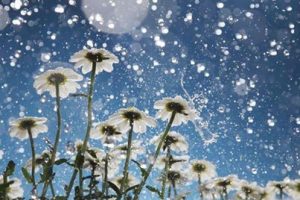 Relaxed Reflection
Relaxed Reflection
In meditation, memories, plans, impulses arise as natural experiences of mind. If your mind is resisting or struggling know that this practice is about coming to accept the truth of things as they are. Whatever your experience is in each moment for that moment that’s the truth that’s what’s happening. You are bearing witness.
We notice how experiences naturally come and go: sounds, sensations, thoughts and emotions. Whatever arises in each moment can be the object of meditation. We allow our attention to connect with an experience. We feel and observe it intimately. We notice how change happens. Nature adapts and self regulates. This is the second of Rhonda Fabian’s Seven Principles and Practices for Engaged Ecology. The practice is being open to learning and change. She writes:
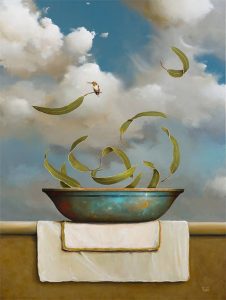 We know we will not be able to change anything without changing ourselves first. We can learn new ways by seeking . . . education about the natural world around us: the names of trees and birds in our area, the quality of our watershed, where our food and the products we purchase come from. . . .
We know we will not be able to change anything without changing ourselves first. We can learn new ways by seeking . . . education about the natural world around us: the names of trees and birds in our area, the quality of our watershed, where our food and the products we purchase come from. . . .
By practicing openness in our views, we benefit from the wisdom of others. In Nature, embracing diversity results in greater resilience. . . . greater insight is revealed through the practice of careful listening and deep thinking. . . .
Now we can reflect on our willingness to change. We can consider our inclination to learn about the natural world. How well do we know our Earth home? We can examine the weight of our choices on our environment. How must Earth bear the effects of our activities, our consumption, our waste? How is this weight borne by the many different people who share this planet? We can reflect on our openness and how we listen. How are we changed by what we see and hear?
Here is Kathleen Raine’s poem, Change:
Change
Said the sun to the moon,
You cannot stay.
Change
Says the moon to the waters,
All is flowing.
Change
Says the fields to the grass,
Seed-time and harvest,
Chaff and grain.
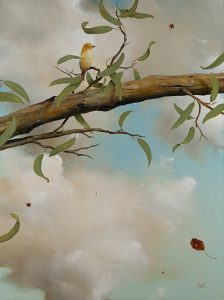 You must change
You must change
Said the worm to the bud,
Though not to a rose,
Petals fade
That wings may rise
Borne on the wind.
You are changing
said death to the maiden, your wan face
To memory, to beauty.
Are you ready to change?
Says the thought to the heart, to let her pass
All your life long
For the unknown, the unborn
In the alchemy
Of the world’s dream?
You will change,
says the stars to the sun,
Says the night to the stars.
“Are we ready to change? . . . For the unknown, the unborn in the alchemy of the world’s dream?”
You can relax here on Earth’s body. Feel the forward momentum of movement begin to slow. Become aware of changing sensations inside the edges of our skin. Open to feeling air on your skin. You can notice how awareness moves . . . from sensation . . . to feeling . . . to thought . . . You can also notice the metta awareness of being aware . . . how spacious it is. Notice how you can cultivate this spacious heart and mind. There is a quality of reverence about it.
In his essay, Rediscovering the Art of Reverence, poet philosopher John O’Donohue wrote:
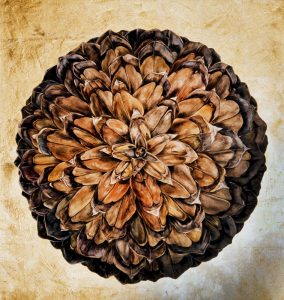 What you encounter, recognize or discover depends to a large degree on the quality of your approach. Many of the ancient cultures practiced careful rituals of approach. An encounter of depth and spirit was preceded by careful preparation. When we approach with reverence, great things decide to approach us. Our real life comes to the surface and its light awakens the concealed beauty in things. When we walk on the earth with reverence, beauty will decide to trust us.
What you encounter, recognize or discover depends to a large degree on the quality of your approach. Many of the ancient cultures practiced careful rituals of approach. An encounter of depth and spirit was preceded by careful preparation. When we approach with reverence, great things decide to approach us. Our real life comes to the surface and its light awakens the concealed beauty in things. When we walk on the earth with reverence, beauty will decide to trust us.
We can reflect on how we practice reverence in our lives . . . how we encounter depth and spirit. Take a moment and recall those moments of “real life” surfacing . . .How did your light awaken the beauty in things? Where were you? . . . Who were you with? . . . How were you changed or moved by the experience?
Kosmos Journal editor, Rhonda Fabian, writes with reverence:
 We have lost nearly a third of our birds in fifty years. . . .Such difficult truths are painful, and we are hardwired to avoid discomfort. But if our first reaction is to run away, we never learn the deeper truth beyond the thing we fear. When we push away the pain of loss – birds, rainforests, human life – we push away the complexity and beauty too. Life on Earth developed only once and all organisms are interrelated. Because birds exist, we exist. And the same goes for fish and trees and bacteria. We inter-are. To reach this insight we have to be willing . to let some of the pain in, and to see our part in it.
We have lost nearly a third of our birds in fifty years. . . .Such difficult truths are painful, and we are hardwired to avoid discomfort. But if our first reaction is to run away, we never learn the deeper truth beyond the thing we fear. When we push away the pain of loss – birds, rainforests, human life – we push away the complexity and beauty too. Life on Earth developed only once and all organisms are interrelated. Because birds exist, we exist. And the same goes for fish and trees and bacteria. We inter-are. To reach this insight we have to be willing . to let some of the pain in, and to see our part in it.
Right now we are meeting the changing world with reverence . . . “to let some of the pain in, and to see our part in it.” We are sitting with difficult truths. We are creating the conditions in which to experience our inter-relatedness with life. We begin again and again by breathing.
Breathing: A poem by Thich Nhat Hanh from his collection Call Me by My True Names
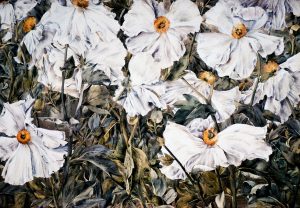 Breathing in, I see myself as a flower.
Breathing in, I see myself as a flower.
I am the freshness
of a dewdrop.
Breathing out,
my eyes have become flowers.
Please look at me,
I am looking
with the eyes of love.
Breathing in, I am a mountain.
imperturbable,
still,
alive, vigorous.
Breathing out,
I feel solid.
The waves of emotion
can never carry me away.
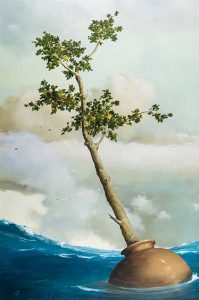 Breathing in,
Breathing in,
I am still water.
I reflect the sky
faithfully. Look, I have a full moon
within my heart,
the refreshing moon of the bodhisattva.
Breathing out, I offer the perfect reflection
of my mirror-mind.
Breathing in,
I have become space
without boundaries.
I have no plans left.
I have no luggage.
Breathing out, I am the moon
that is sailing through the sky of utmost emptiness.
I am freedom.
